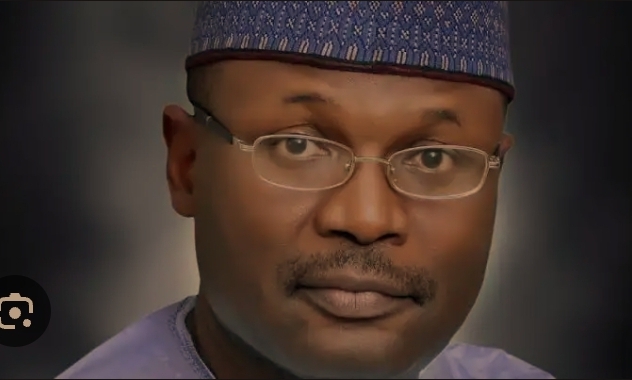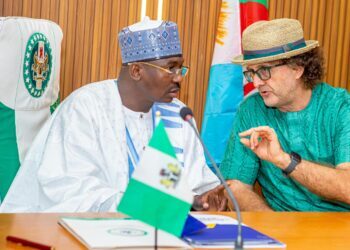By Tambaya Julius, Abuja
The Independent National Electoral Commission (INEC) Chairman, Professor Mahmood Yakubu, has officially declared that his tenure as the head of Nigeria’s electoral body will end later in 2025. He made this announcement while speaking at the Extraordinary General Assembly of the ECOWAS Network of Electoral Commissions (ECONEC), held in Banjul, The Gambia.
During his address, Yakubu noted that this was his last participation in an ECONEC gathering in his capacity as INEC Chairman, drawing a close to a significant chapter in Nigeria’s democratic history.
Yakubu who was appointed in November 2015 by former President Muhammadu Buhari, Professor Yakubu first assumed office for a five-year term. His mandate was later extended in 2020, granting him a second and final term as the electoral commission’s chairman.
He oversaw the 2019 and 2023 general elections, both of which were mired in controversy and scrutiny, yet marked by landmark reforms and improvements in electoral processes. Under his watch, INEC undertook significant steps towards transparency, including the adoption of new technologies and digital voter registration systems.
Yakubu’s announcement follows a wave of online rumours that suggested he had been removed from office by President Bola Tinubu. These speculations gained traction when INEC posted about Sam Olumekun, who was referred to as the acting chairman, hosting a delegation from the Labour Party, led by Abia State Governor Dr. Alex Otti.
However, these claims were swiftly debunked by the Presidency, and Rotimi Oyekanmi, Chief Press Secretary to the INEC Chairman, stepped in to clarify the situation. Oyekanmi explained that Olumekun was only acting in a temporary capacity while Yakubu was away in The Gambia for the ECONEC event.
In his address at the ECONEC assembly, Yakubu extended his gratitude to fellow electoral commission leaders across the ECOWAS region. He applauded the collaborative spirit that has prevailed over the years and highlighted the importance of unity, transparency, and electoral credibility in strengthening democracy.
He acknowledged the challenges faced during his tenure but also celebrated the progress made.
Yakubu further reiterated the importance of continuous engagement among Election Management Bodies (EMBs) in West Africa, especially amid the region’s fluctuating democratic stability.
Yakubu focused his speech on the broader state of democracy in the ECOWAS region. He raised concerns about the recent political developments in four West African countries that have experienced a regression from democratic governance. While he did not name the countries explicitly, his remarks underscored a regional trend that has been cause for alarm among democratic institutions.
He expressed hope that these nations would soon return to democratic rule, supported by strong electoral systems and regional collaboration. He reaffirmed his belief that ECONEC has a vital role in guiding member countries through transitions and ensuring that credible electoral processes are upheld.
Leaders and representatives from EMBs in Benin, Cape Verde, Côte d’Ivoire, The Gambia, Ghana, Guinea-Bissau, Liberia, Nigeria, Senegal, Sierra Leone, and Togo attended the meeting. They commended Yakubu for his commitment to electoral integrity and the pivotal role he played in fortifying ECONEC’s mission.









